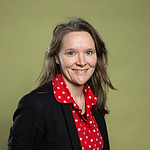Circular Product Development
Information on exchange
Circular Product Development
- Level
- Language
- English
- Credits
- 30 ECTS
- Startmonths
- Start: February
- Locations
- Groningen
We live in a throwaway culture: products are often made for single use. The continuous creation of new products leads to a scarcity in raw materials and large CO2 emissions, while the discarded products negatively affect our health. At the same time we know that 80% of the environmental impact of consumer goods is determined during the design phase. With this in mind, the programme Circular Product Development has been established. The main purpose of this programme is for students to acquire knowledge and skills in circular product development through applied research (research by designing) in order to minimize the environmental impact.
In this programme, you will be researching a method of sustainable product development, together with other students from various disciplines. You will work on a project assignment, provided by a client, within a multidisciplinary project team. Increasing circularity in product design will be the central theme of your research assignment. You will do this by developing a product and through applied research.
You will analyse the entire (value) chain: this means investigating the source of the raw materials, how the product will be manufactured and what happens to it during and after its useful life. By analysing this chain, the actual problem (value loss) of the product system can be determined, which will serve as input for the rest of the process.
You will address an identified ‘value loss’ by using so-called ‘Design for R-strategies’. This could be, for example, re-designing the product for ‘Re-use’, ‘Re-manufacture’, ‘Repair’ and ‘Recycle’. You will gain knowledge on joining techniques, material properties, material streams, and will learn how to apply this knowledge.
Furthermore, by performing a life cycle analysis (LCA), you will learn how to identify the impact of your product on humans (e.g. toxicity) and the environment (CO2 footprint).
You will work on research assignments for companies and institutions. Your research assignment will take 20 weeks. During this time you will take part in various workshops to extend your knowledge. Every week there will be a coaching session with a lecturer-researcher of the program. The knowledge and skills you gain will be collected. It will be passed on to a next research project and shared within the network.
This programme is accessible for students Mechatronics, Industrial Engineering and Management, Mechanical Engineering, Industrial Design, Built Environment and Entrepreneurship & Retail Management. Students with a background in art combined with product design are also accessible.
| Project | 10 ECTS | |
| Circular Materials | 5 ECTS | |
| Circular Product Development methods | 10 ECTS | |
| Sustainability challenges as complex systems | 5 ECTS |
Who are you?
You are someone who:
- Likes to contribute to a cleaner world
- Is keen to learn about (circular) materials and techniques
- Likes to experiment with materials and techniques
- Wants to experience working in a multi-disciplinary team
What will you learn?
- Applying and executing a value chain analysis (using the CIRCO methodology)
- Understanding and applying the ‘Design for R-strategies’
- Understanding the product development process
- Understanding and applying life cycle analyses (LCA) of a product
- Extended materials knowledge with a focus on sustainability and value
- Contributing to applied research and designing for a customer
Take a look at the ECTS course catalogue for more information.
Please note that the schedule for this programme may vary from week to week. The programme is intensive and students who apply for this programme are expected to be available and present for the whole duration of the programme. Students are also expected to do the whole programme of 30 ECTS credits.
Before you can start
This programme is accessible for students Mechatronics, Industrial Engineering and Management, Mechanical Engineering, Industrial Design, Built Environment and Entrepreneurship & Retail Management. Students with a background in art combined with product design are also accessible. In case your programme is not listed, it is possible to discuss whether participation would still be compatible.
Admission & application
Please check with your home university whether there is an agreement set up with the Hanze School that is offering the exchange programme of your choice. To apply for and be admitted for our exchange programme you should take the following steps
-
1. Be nominated by your home university
Once you have been nominated, your nomination will be checked by us and confirmed to your home university by email. You will receive your application link during our application period.
-
2. Submit your online application
Once you have been nominated by your home university you will receive a personal application link and the application instructions during our application period. The application is fully digital and documents do not have to be send by email or postal mail. Make sure you do not miss our application deadline!
-
3. Letter of Acceptance
Once you have submitted your application we will check your documents. If you have to re-submit any documents, we will let you know. We will be sending out Acceptance Letters from the beginning of May when you start in September and from the middle of October when you start in February.
Find out more about our application process and practical matters.
Frequently Asked Questions
Contact
-

Britt Roumen
Docent-onderzoeker
Feedback component
How satisfied are you with the information on this page?



